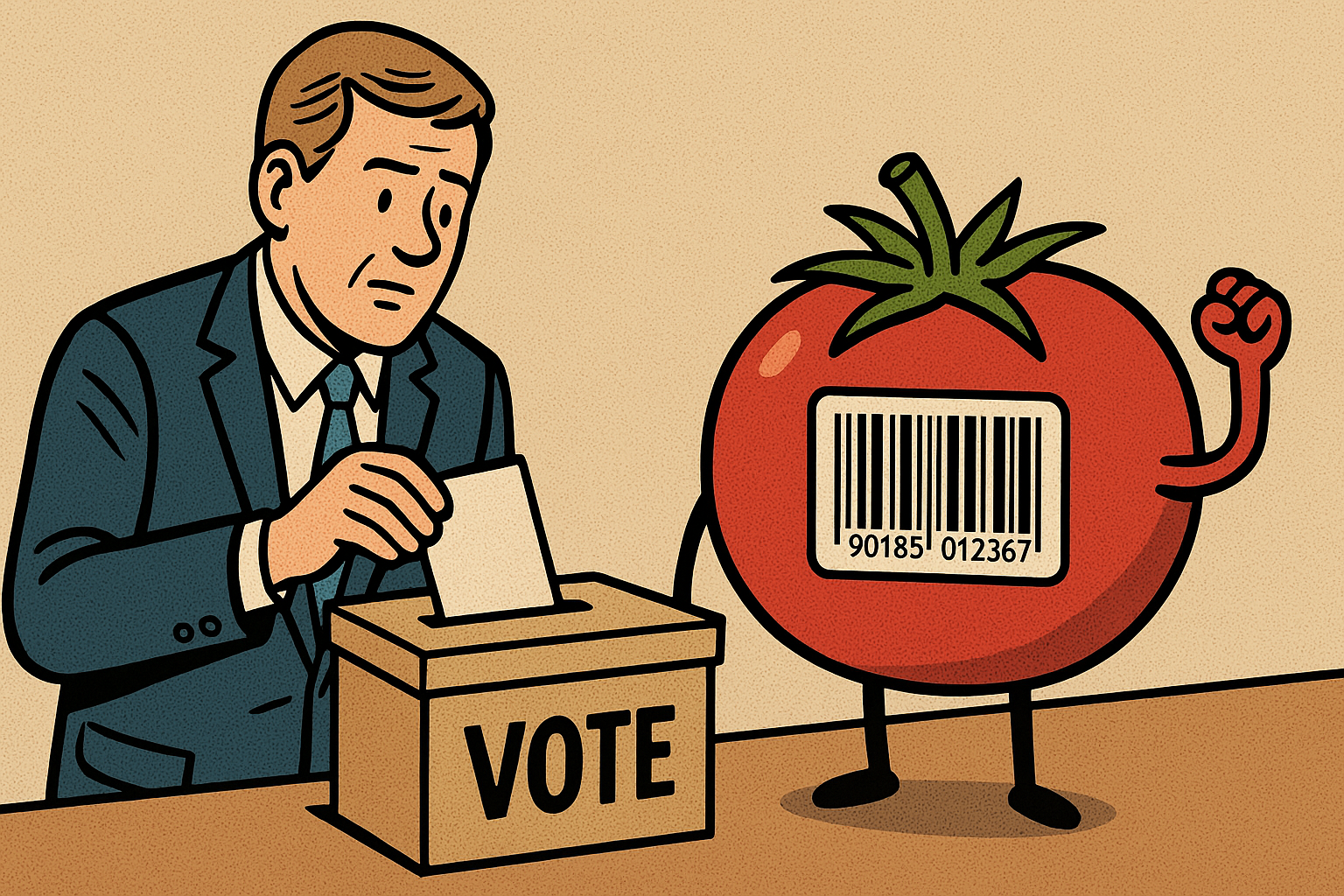Chicago, IL – In what is being hailed as both a technological advancement and a colossal oversight, an update to barcode technology has inadvertently granted voting rights to tomatoes in grocery stores across the nation. The software update, meant to optimize inventory tracking and customer convenience, was rolled out last week by Barcode Innovations LLC, a prominent developer in the automated retail sector.
Initially conceived to streamline checkout procedures by allowing produce to communicate directly with point-of-sale systems, the update inadvertently resulted in a provision that recognizes certain citrus and nightshade entries on voting rolls. The error became apparent when a vine-ripened Roma attempted to register at a polling station in Skokie, Illinois for the upcoming local elections.
“This is a completely unintentional byproduct of a code enhancement meant to improve product personality recognition,” stated Dr. Everett Splice, lead programmer at Barcode Innovations, who spoke to the press while frantically picking through a salad. “We intended to bring vegetables closer to consumer preference profiling—not participatory democracy.”
While developers grapple with rectifying the unexpected enfranchisement of produce, electoral officials are left to address the logistical and philosophical implications. “Are these tomatoes equipped to make decisions regarding public policy?” pondered Sandra Plumley, the Assistant Registrar of Voters for Cook County. “Given their consistent presence in most households, you might argue they have a stronger understanding of community dynamics than your average voter.”
Further complicating the issue, a consortium of hardware stores and farmer’s markets has launched a lobbying effort championing “Vegetables as Vital Voices,” making the case for a wider inclusion of flora in public discourse. Representatives cite recent studies indicating tomatoes possess the same civic efficacy as a moderately-engaged city councilman.
Meanwhile, debates rage regarding which tomatoes legitimately qualify for suffrage. Heirlooms, noted for their resilience and complex genetics, are hailed as model citizens, whereas store-brand canned tomatoes face scrutiny due to their potential foreign origins. Experts warn that such differential treatment might violate emerging “Plantae Rights” doctrines under the United Nations’ “Universal Declaration of Vegetative Entities.”
Despite growing concerns, the USDA remains hesitant to act, opting instead for cautious observation. “It’s not as though we’ve observed rampant political partisanship among the tomato community,” reassured Calvin Pint, head of Consumer Affairs at the Department. “To our knowledge, no produce has yet attempted to run for office—though we did receive an inquiry from a particularly assertive head of iceberg lettuce.”
Trading merchants are advised to install coverings and protective barriers around remaining non-participatory produce for fear of radicalization. As of press time, no other fruits or vegetables have asserted voting rights, leaving the prospect unlikely but conceivable given the current trajectory of legislative interpretation.
In a drab conclusion to an unfolding saga, Dr. Splice stated with resignation, “At the very least, it might increase voter turnout.”

Leave a Reply